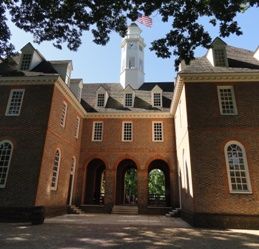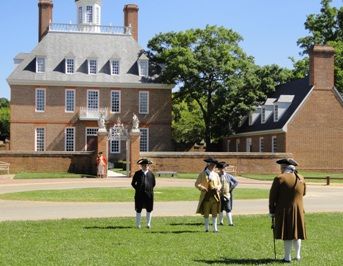Colonies and Places
Lost Colony of Roanoke
Jamestown Settlement
Plymouth Colony and the Pilgrims
The Thirteen Colonies
Williamsburg
Daily Life
Clothing - Men's
Clothing - Women's
Daily Life in the City
Daily Life on the Farm
Food and Cooking
Homes and Dwellings
Jobs and Occupations
Places in a Colonial Town
Women's Roles
Slavery
|
People
William Bradford
Henry Hudson
Pocahontas
James Oglethorpe
William Penn
Puritans
John Smith
Roger Williams
Events
French and Indian War
King Philip's War
Mayflower Voyage
Salem Witch Trials
Other
Timeline of Colonial America
Glossary and Terms of Colonial America
|

